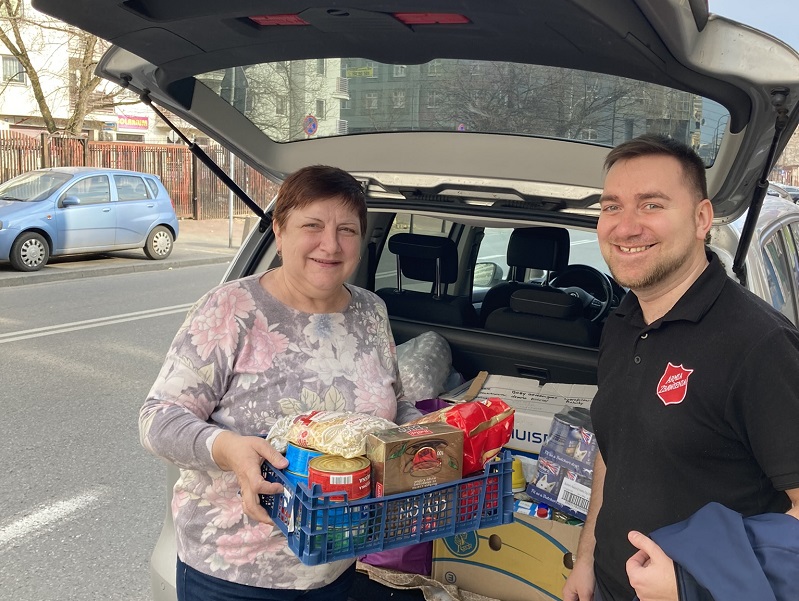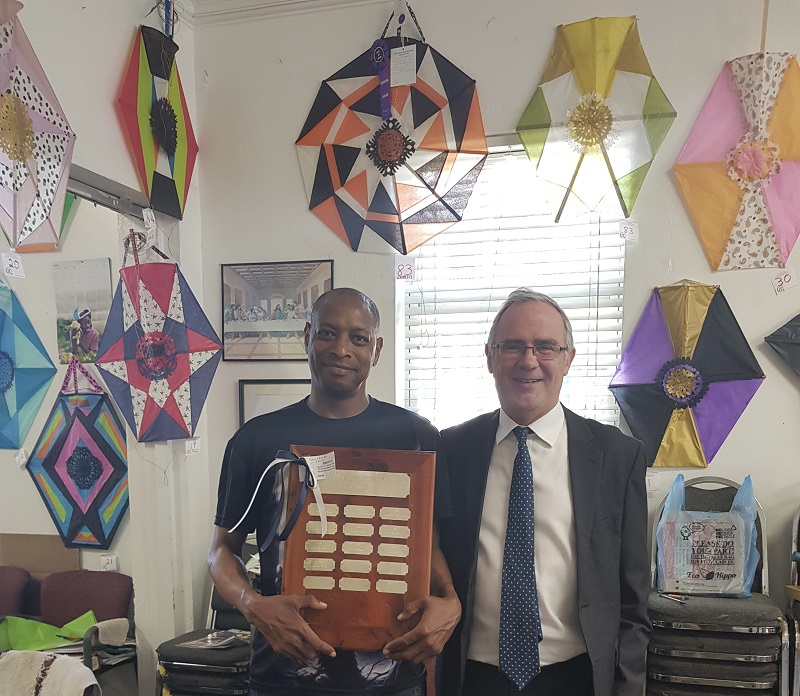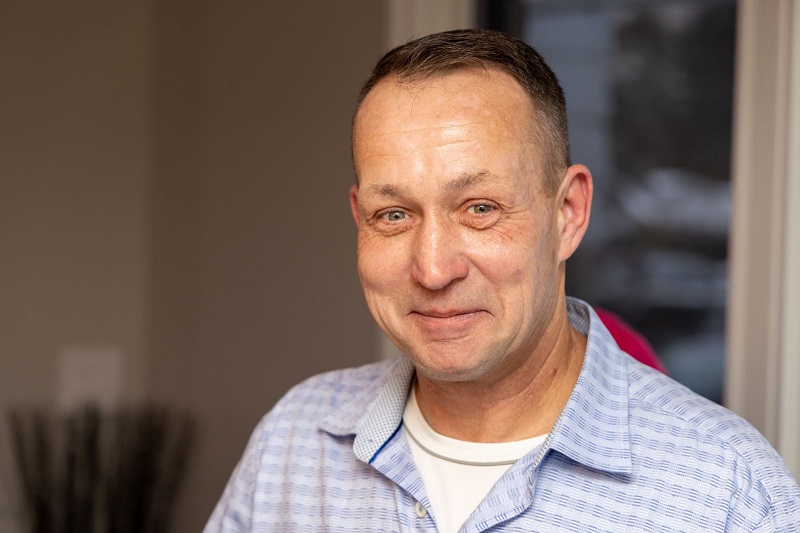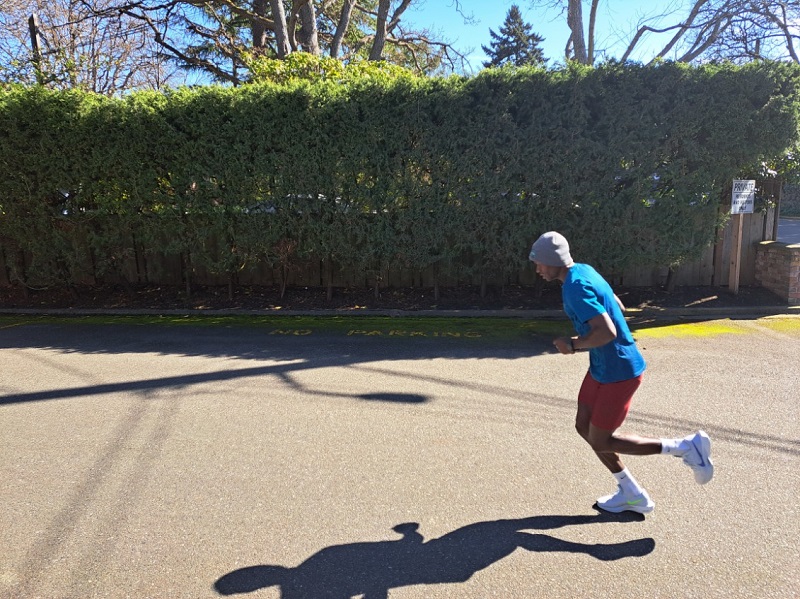Through the Border and Beyond

While the bombs rained over Kharkiv, a mother fled to her son, an officer/pastor in The Salvation Army in Warsaw. Millions of her Ukrainian countrymen are being forced to make a new life, and Salvation Army members in the Polish capital are offering hope along the way.
“It’s been very difficult to watch all the terrible things happening in Ukraine, especially when my mother was still there, stuck in a bomb shelter,” says Captain Oleg. “Fortunately, I got to pick her up at the border and most of my family is safe. Now we’re helping others together.”
Three Days on the Run
Irina is with her son now, but the journey was rough. She spent several days in a bomb shelter beneath her apartment in Kharkiv, some of them without food—and often covering toddlers with her own body and a mattress as the explosions surrounded them.
“The Russian troops stood almost right next to our building, and we were afraid to go out, because they bombed all the time,” says Irina.
One day, one of the bombs struck their home, and Irina, her sister and husband knew they had to leave. “No taxi would come and get us in this area, even though we offered extra money,” says Irina. “But we managed to get out by the help of Oleg’s stepbrother and his car, thank God.”
They succeeded in getting through the Kharkiv gate, which was jammed with other refugees, and a three-day journey towards Poland followed. Irina was so shocked by the situation that it was difficult to concentrate. On the way, The Salvation Army helped with transportation and shelter along with another local church, but Irina’s husband had to stay behind.
“We try to show the refugees that there are still possibilities and opportunities in the midst of it all.”
“When I finally reached the border and saw Oleg, I cried,” smiles Irina. “I’m very grateful for all the people who have prayed for me and helped me. I still have shaking hands though, and still get stressed when I hear the siren of an ambulance or other sudden, very loud noises.”
Hope
At The Salvation Army’s reception centre in Warsaw, which is normally used as a family centre, new refugees come in every day. A native Ukrainian, Oleg communicates in their language, and provides lessons for learning Polish. When the coffee is served, there are many stories of escape and trauma.
“The Salvation Army is a place for hope.”
“Sometimes I’m at a loss for words,” says Oleg. “I’ve heard of people that went abroad prior to the war, and now can’t go home. Wives who said goodbye to their husbands at the border, and many other things. One day a person might be a principal, the next day a refugee without shoes, looking back at a destroyed school. There are a lot of tears.”
Housing is a big problem in Warsaw. Places are full. People are living in hotels, study rooms, hospitals or on couches—anywhere there is room.
“People can’t live like that forever,” says Oleg. “It’s so stressful. Other Salvation Army churches in Poland are helping people with shelter, and we have helped each other with money, accommodation and information.”
Oleg believes the war shows how important it is to have a local Salvation Army church—a steady presence in a community, always willing to help. It’s not only about food and clothes, but also about hope and fellowship.
“We try to show the refugees that there are still possibilities and opportunities in the midst of it all,” says Oleg. “Many of them just need time to wipe away the tears, to get rid of the first shock, and someone to tell them there is hope for the future. The Salvation Army is a place for hope.”
By Dan Kristoffersen
Journalist, Krigsropet (The War Cry)



